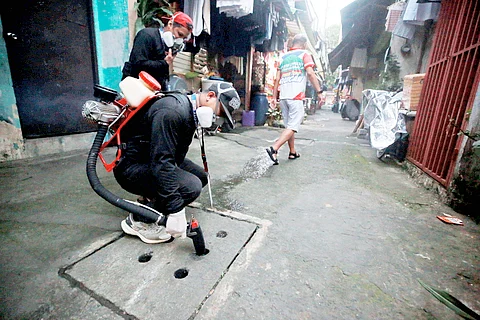
- NEWS
- the EDIT
- COMMENTARY
- BUSINESS
- LIFE
- SHOW
- ACTION
- GLOBAL GOALS
- SNAPS
- DYARYO TIRADA
- MORE

The Department of Health (DoH) on Monday expressed concern over the significant rise in dengue cases across nine local government units (LGUs) in the Philippines.
Among the affected areas is Quezon City, which declared a dengue outbreak last week after 10 deaths, mostly of children, were reported. Over 1,700 dengue cases were recorded in the city in the first two weeks of February alone.
While the DoH did not disclose the identities of the other eight LGUs, it confirmed that the cases were spread across Calabarzon, Central Luzon and Metro Manila.
“DoH Centers for Health Development (regional offices), through their respective Regional Epidemiology and Surveillance Units (RESU), have been advising their counterparts at the LGU level,” the department stated.
The DoH also clarified that the declaration of a local dengue outbreak falls under the authority of LGU officials, in accordance with the law.
DoH spokesperson Albert Domingo revealed that, as of 1 February, the department had recorded 28,234 dengue cases.
“This is 40 percent higher compared to last year. But what is more concerning is why this is happening so early in the year,” Domingo said.
Typically, dengue cases peak during the rainy season in June or July, when conditions are ripe for mosquito breeding. However, the early surge is raising concerns.
Domingo linked the outbreak to climate change, coupled with issues of community management and infrastructure. He stressed the need for continuous preventive measures, saying, “The clean-up drive is not seasonal; it must happen year-round.”
As the DoH intensifies its efforts to contain the outbreak, officials urged communities to remain vigilant in maintaining clean surroundings to curb the spread of the disease.
